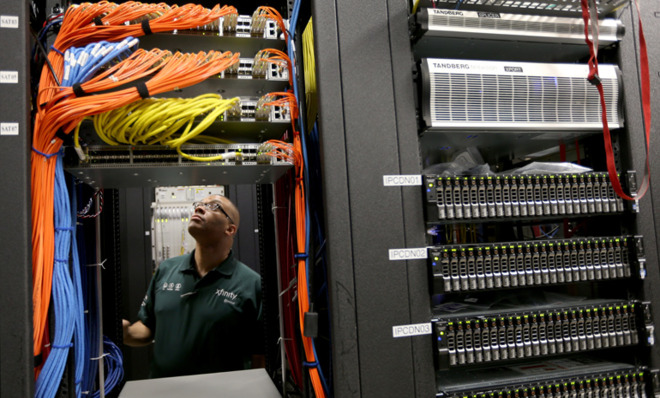Why is American internet so slow?
The country that literally invented the internet is now behind Estonia in terms of download speeds
By John Aziz | March 5, 2014[/b]
According to a recent study by Ookla Speedtest, the U.S. ranks a shocking 31st in the world in terms of average download speeds. The leaders in the world are Hong Kong at 72.49 Mbps and Singapore on 58.84 Mbps. And America? Averaging speeds of 20.77 Mbps, it falls behind countries like Estonia, Hungary, Slovakia, and Uruguay.
Its upload speeds are even worse. Globally, the U.S. ranks 42nd with an average upload speed of 6.31 Mbps, behind Lesotho, Belarus, Slovenia, and other countries you only hear mentioned on Jeopardy.
So how did America fall behind? How did the country that literally invented the internet — and the home to world-leading tech companies such as Apple, Microsoft, Netflix, Facebook, Google, and Cisco — fall behind so many others in download speeds?
Susan Crawford argues that "huge telecommunication companies" such as Comcast, Time Warner, Verizon, and AT&T have "divided up markets and put themselves in a position where they're subject to no competition."
How? The 1996 Telecommunications Act — which was meant to foster competition — allowed cable companies and telecoms companies to simply divide markets and merge their way to monopoly, allowing them to charge customers higher and higher prices without the kind of investment in internet infrastructure, especially in next-generation fiber optic connections, that is ongoing in other countries. Fiber optic connections offer a particularly compelling example. While expensive to build, they offer faster and smoother connections than traditional copper wire connections. But Verizon stopped building out fiber optic infrastructure in 2010 — citing high costs — just as other countries were getting to work.
Crawford told the BBC:
We deregulated high-speed internet access 10 years ago and since then we've seen enormous consolidation and monopolies… Left to their own devices, companies that supply internet access will charge high prices, because they face neither competition nor oversight. [BBC]
Other countries have done more to ensure that the market is open to competition. A 2006 study comparing the American and South Korean broadband markets concluded:
The South Korean market was able to grow rapidly due to fierce competition in the market, mostly facilitated by the Korean government's open access rule and policy choices more favorable to new entrants rather than to the incumbents. Furthermore, near monopoly control of the residential communications infrastructure by cable operators and telephone companies manifests itself as relatively high pricing and lower quality in the U.S. [Professor Richard Taylor and Eun-A Park via Academic.edu]
The idea of a regulated market being more conducive to competition may be alien to free market ideologues, but telecoms and internet is a real world example of deregulation leading to monopolization instead of competition in lots of markets.
The Obama administration is trying to undercut the whole mess by building new publicly-funded wireless networks to offer fast 4G internet across the U.S. Whether this public investment will really prove effective at bringing internet competition to monopolized markets — and nudging the highly profitable private companies like Time Warner and Comcast into improving their services — remains to be seen.
So, many — including Crawford and others — are now calling for stronger regulation of the existing market. At The New Yorker, John Cassidy argued last month:
What we need is a new competition policy that puts the interests of consumers first, seeks to replicate what other countries have done, and treats with extreme skepticism the arguments of monopoly incumbents such as Comcast and Time Warner Cable. [The New Yorker]






Comment